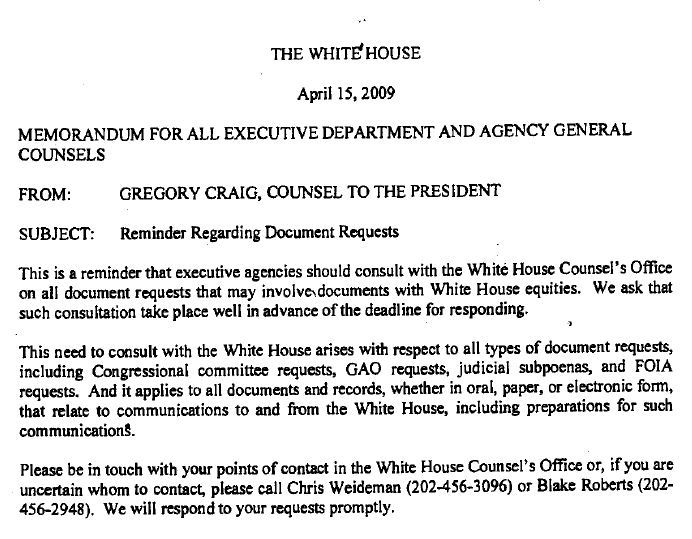You’re unlikely to hear much about it, but today marks an important yet troubling milestone. The Department of the Interior has gone 3,000 days—over eight years—without a permanent IG, or “Inspector General.” And according to the Project on Government Oversight’s “Where Are All the Watchdogs?” tracker, there are eleven other IG vacancies, including empty spots at the Central Intelligence Agency (832 days), the Department of Defense (489 days), and the National Security Agency (346 days). It was inexcusable for President Obama to neglect to fill these vacancies with qualified candidates. It is similarly irresponsible for President Trump to continue to ignore these vital appointments.
IGs serve as the internal watchdogs of the Executive Branch agencies. They are tasked with identifying and combatting waste, fraud, and abuse at their respective entities. To accomplish this, they conduct important investigations, inspections, and audits. They are intended to operate independently of agency leadership—a sort of internal check on the operation of the administrative state.
The absence of permanent IG appointees to these vital roles is concerning for numerous reasons. First, it reflects the Administration’s lack of commitment to transparency and accountability in government. Moreover, acting IGs lack true independence. As Senator Ron Johnson has commented, “[t]hey are not truly independent, as they can be removed by the agency at any time; they are only temporary and do not drive office policy; and they are at greater risk of compromising their work to appease the agency or the president.”
There has been a renewed push to highlight the crises in IG appointments in recent weeks. The House Oversight and Government Reform Committee, for example, called on President Trump last month to fill the numerous vacancies, describing IGs as “essential to the functions of federal government.” A bi-partisan group of members of the Senate Homeland Security and Governmental Affairs Committee did the same: “[T]he lack of a permanent IG can create the potential for conflicts of interest and diminish the essential independence of IGs.”
President Trump still has a long way to go in appointing qualified candidates to fill the Executive Branch, and it is admittedly early in his Administration. But selecting qualified, independent, and committed individuals for these vacant watchdog spots should be a top priority.
Ryan Mulvey is Counsel at Cause of Action Institute.

